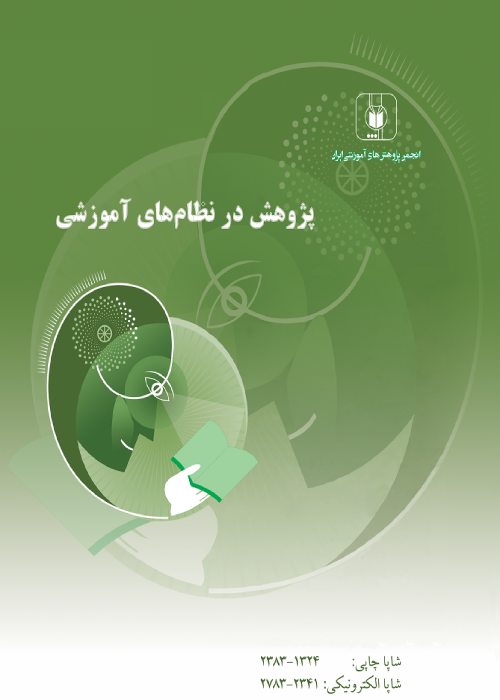Design and Validation of Knowledge Management Model of University Staff
Author(s):
Article Type:
Research/Original Article (دارای رتبه معتبر)
Abstract:
In this research, designing and validating the knowledge management model for university staff has been addressed. The methodology of the present study was applied in terms of objective, qualitative and qualitative data, and from the nature and type of the study is the type of foundation data. By interviewing and finally using the interpretive theory, a native pattern is finalized. The target population of the present study consist of academic experts. A sample of 30 target-oriented snowball counts was selected by experts from the field of science education. The research tool was a semi-structured interview form in which the template, dimensions, components and indicators of the KM model were set. For this, patterns, findings, studies, and theories were first examined. Then, they were counted by index coding, and after the categorization of the central coding, the final form of the interview was sent to 30 field experts to make selective coding and obtained through the Delphi technique and a deep interview saturation survey. Validity and validity of the organized interview form were obtained through the Delphi fan. The method of data analysis is qualitative and the results of this study indicate that the optimal model of knowledge management model for university staff is composed of 111 items that can be used by the staff of universities. The template consists of four dimensions, which, in order of priority, include the dimension of the production of knowledge, the dimension of the organization of knowledge, the application of knowledge, and then the reproduction of knowledge. The constructive components of the model include knowledge goals, knowledge recognition, knowledge acquisition, knowledge development, knowledge development and processing, knowledge storage and maintenance, knowledge sharing and sharing, application of knowledge, knowledge assessment and production, and creation of new knowledge.
Keywords:
Language:
Persian
Published:
Quarterly Journal of Research in Educational Systems, Volume:12 Issue: 40, 2018
Pages:
509 to 526
https://magiran.com/p1872020
دانلود و مطالعه متن این مقاله با یکی از روشهای زیر امکان پذیر است:
اشتراک شخصی
با عضویت و پرداخت آنلاین حق اشتراک یکساله به مبلغ 1,390,000ريال میتوانید 70 عنوان مطلب دانلود کنید!
اشتراک سازمانی
به کتابخانه دانشگاه یا محل کار خود پیشنهاد کنید تا اشتراک سازمانی این پایگاه را برای دسترسی نامحدود همه کاربران به متن مطالب تهیه نمایند!
توجه!
- حق عضویت دریافتی صرف حمایت از نشریات عضو و نگهداری، تکمیل و توسعه مگیران میشود.
- پرداخت حق اشتراک و دانلود مقالات اجازه بازنشر آن در سایر رسانههای چاپی و دیجیتال را به کاربر نمیدهد.
In order to view content subscription is required
Personal subscription
Subscribe magiran.com for 70 € euros via PayPal and download 70 articles during a year.
Organization subscription
Please contact us to subscribe your university or library for unlimited access!


